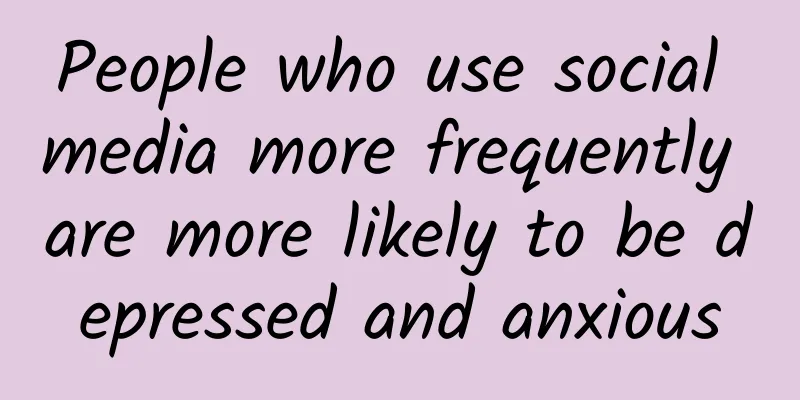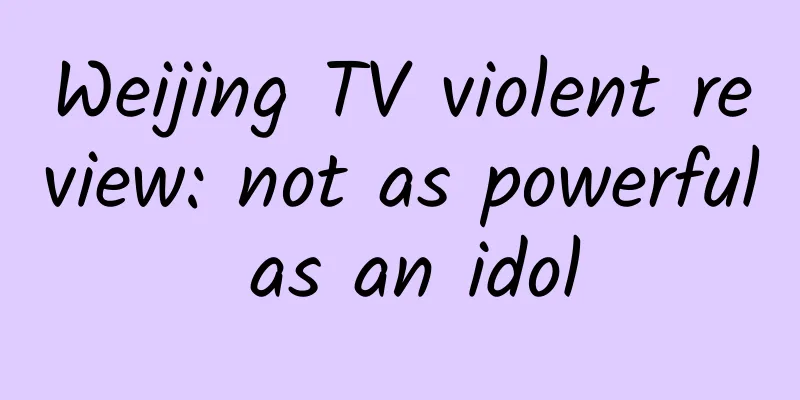APP promotion and operation is difficult, where are the pain points?

|
Do you often encounter the following scenarios: The boss makes decisions on the spur of the moment and likes to follow the crowd. When you see what others are doing that is popular, you want to do it too, regardless of whether it is suitable for you or not, just let the people below you do it first. Isn’t the Internet all about trial and error? The product process is complicated and users don’t know how to use it. You have to explain it to them repeatedly and write a product usage manual for them. Do users really have time to read your instructions? The design schedule is so long, the copywriting has been submitted, but there has been no progress for a week, and finally it comes out, but damn, it’s still in the Shamatte style! Are you the funny guy hired by the monkey? The R&D team is not serious and there are many bugs. Product operations immediately become front-line customer service. There are hundreds of complaints to be handled every day. Will there be time to do something else? The operational plan is never strictly implemented, and my own execution ability is not enough. I have come up with a plan that I think is perfect, but in the end it cannot be implemented. When communicating with some operations staff, I often ask them what difficult problems they are facing in their current work and what makes them sad and helpless in their work. On the one hand, I hope to find some commonalities among other people’s problems and improve my work efficiency. On the other hand, we also hope to see if some problems can be solved through communication. Today, let’s summarize the “pain points” that make operations personnel feel distressed. 1. Operational work has no direction Whether it is a relatively mature large company or a newly established startup , it is a common problem that operations work has no direction. Many large companies like to shoot first and aim later. If they think something is going to be popular, they will find a group of people to do it. If there is no progress after half a year, they will transfer these people to other teams. If you don't want to change jobs, we will give you some time to find a job and let you leave on your own. Startups generally choose directions that the giants have not done or have not done well, lack objects to imitate , and have an uncertain grasp of the future. Although they feel that their general direction is correct and that users need such a product, they don’t know how to do it specifically and how to make others know and recognize your product? I'm basically completely confused, hitting the east wall today and the west wall tomorrow. It is certain that operations require trial and error, but if you can’t find the direction for a long time, the product may not survive. I didn’t realize this problem when I first started working. Maybe my main focus at that time was on how to execute it well. As I worked longer, I found that operations work was filled with too many directionless things. There are not many people who can have clear work goals and clear means of implementation. 2. Focus on products and neglect operations Before writing this article, I conducted a small survey on WeChat and found that most operators would complain about this issue. In my understanding, product managers are responsible for making products, and operations are responsible for selling products. The status of the two should be equal, but their focus is different and they are not in the same period. If the product has just been launched, then the focus should be on the product. Since the product needs a lot of improvement at the current stage and is not yet perfect, if you create a "thing" that users cannot use, then there is nothing to operate. When a product has been online for a long time and is relatively mature, the value that can be brought by optimizing the product is extremely limited, unless the product manager has some groundbreaking ideas or the ability to surpass others, which is basically something that can only be encountered by chance. And even if there are some major breakthroughs in the product, it will be useless because the barriers that can be built on the product are too easy to break through. There is definitely nothing wrong with focusing on improving product experience during the product maturity stage. However, if, with limited resources, you focus too much on the product and neglect the support of operational work, not to mention whether the product can be made well, at least you will not be able to "push" the product well. Unless you can create a product like the iPhone that users rush to buy, you will be eliminated by the market sooner or later. 3. Teammates are not strong enough The operations position is actually a position that requires strong support. Every excellent activity and operation plan is completed with the good support of R&D and design. It is difficult to achieve multiple indicators such as attracting new customers, retaining old customers, promoting daily activity, and increasing revenue by relying solely on a few operations departments. Unless the operations department has its own art designers and R&D personnel, it is difficult to rely solely on operations. In most cases, the operations do not require much support and do not require dedicated assistance. Generally, only occasional assistance is needed. If this cannot be supported, I really don’t know what to say. Many excellent products are made with capital and manpower. Even a Durex Weibo account needs a team to run well, let alone a product? In this regard, on the one hand, operators must master their own skills and try not to rely on others. On the other hand, appropriate support from colleagues in other positions is very necessary. 4. Insufficient manpower Operation is a job that relies heavily on execution, and execution requires people. If the manpower is not in place and the work is not cut, then in the end, it can only be run. There are many articles online about product subtraction, but few people mention operational subtraction. This may be because operational work is a kind of accumulation. In many cases, although the manpower has decreased, the previous accumulation can still be used for a period of time. In the short term, the decline in data will not be intuitively seen, which makes many people ignore the subtraction of operational work and think that it is okay without reduction. Let me give you an example. We previously had a Weibo account that was doing very well and was very influential in the industry. It basically outperformed our competitors in seconds. But later the person in charge left and there was no one to take over. Basically, it was maintained by half the manpower of an intern. At the beginning, there was not much decline in the data, but over time it got worse and now it has basically fallen to the same level as our competitors. When human resources are insufficient to cope with so much work, you must do subtraction. If you are unwilling or unable to do subtraction for the time being, at least you must determine a focus to work on. On the one hand, if the operations staff are overworked, although they can barely maintain the operation of various channels, ultimately each channel is allocated limited resources and no significant results can be achieved. On the other hand, this will stifle employees' creativity. They will not have time to display their own specialties and advantages. Over time, employees will leave. Capable people are unwilling to just do operations. 5. Insufficient execution We have talked about a lot of external factors before, now let’s talk about internal factors. The operations of different industries and products vary greatly, but can be simply summarized into three things: Three things to do Good ideas are based on a deep understanding of the industry, products, and users. Many people ask others every day (especially on Zhihu, or ask the authors of some public accounts. The public account of Operation Miao has a function for novices to ask questions, and is often asked various questions). I am now working on an XXX product. How can I do a good job in operation? In fact, this is a sign of insufficient understanding. It is difficult for others to understand your actual situation and give you very practical advice. It is better to spend this time to interact with more users and observe competitors. Strong execution is based on a sense of responsibility. Only by being willing to be responsible for products and users can things be done well. During the execution process, many details cannot be supervised by anyone, and whether it can be done well in the end depends only on the person who executes it. Moreover, operational work is often a process of accumulation. If it is not done well once, it may not be reflected in the data. If this continues for a long time, it will be too late when the truth is revealed. Analysis and summarizing is a habit, and sticking with it will come naturally. As long as you can persist once or twice, it will become natural in the long run. The most basic of these three things is execution, and everything is built on efficient execution. Even if you currently know little about the industry, products, and users, you can still have the opportunity to grow if you keep your head down and do your job well. If you can't do a good job of basic execution, then nothing else can come of it. In my observation, most people's execution ability is not strong. They are lazy as long as they can be, never actively looking for things to do, and just give up on things when the weekend comes. They do things in a muddle-headed manner without paying attention to details, etc. 6. Lack of self-awareness Some time ago, Liang Ning wrote an article mentioning the four major levels of Internet careers: the first level is the action execution level, the second level is the task execution level, the third level is the strategic management level, and the fourth level is the strategic decision-making level. For people at a certain level, the most important thing is to do what they should do. On this premise, it is not a bad idea to consider issues at other levels, but don't be too opinionated. But many people like to brag about how their superiors do things. Such people are generally more boastful. They are obviously in charge of execution, but they talk about strategies every day and are not down-to-earth at all. Just as Jack Ma said, "If you have been with the company for less than a year, please don't write a strategic report for me, and don't mention Alibaba's development plan... Whoever mentions it will leave! But after you have been an Alibaba employee for three years, I will listen to what you say." A friend of mine once asked her old boss: Under what circumstances can subordinates give suggestions to the leader? The leader’s answer to her at that time was: When the leader is very new to you, you can make suggestions. I think this is very true, so I would like to share it with you. APP Top Promotion (www.opp2.com) is the top mobile APP promotion platform in China, focusing on mobile APP promotion operation methods, experience and skills, channel ASO optimization ranking, and sharing APP marketing information. Welcome to follow the official WeChat public account: appganhuo [Scan the top APP promotion WeChat QR code to get more dry goods and explosive materials] |
<<: The only semi-annual review of WeChat Mini Programs personally compiled by Zhang Xiaolong!
Recommend
This drink has become popular recently! Some people call it "liquid diamond", but its nutritional content is surprising...
Since the beginning of this year, a new "hea...
How to use the Spring Festival node to guide user promotion?
The Spring Festival is a day of family happiness....
Is it true that village cadres will be recruited in 2022? Attached is the latest policy for village cadres in the Central Government’s Document No. 1 of 2022!
As we all know, village cadres are at the forefro...
Video tutorial for beginners on how to play King of Glory! Video tutorial on how to play King of Glory! Baidu Cloud Disk resources free download
As Honor of Kings becomes more and more popular, ...
The Big Dipper looks close, but is actually far away? Their starlight comes from hundreds of years ago
Looking up at the starry sky can bring peace of m...
Ivy League Daddy "Fun Chess Thinking Course L2 Chess Advanced Course"
Ivy League Daddy's "Fun Chess Thinking C...
Mumu Children's Photography Course [Good quality and material]
Mumu Children's Photography Course [Good qual...
Android Studio Arctic Fox (2020.3.1) Beta released, enabling a new version naming scheme
Google released the first Beta version of Android...
WeChat photo editing and beauty mini program function, how much does it cost to make a WeChat mini program for old photo restoration?
Nowadays, it is really difficult to distinguish t...
2017 self-media operation encyclopedia!
The topic I want to share today is self-media ope...
Jing Xiang-Business behind-the-scenes operation underlying architecture + 17-node strategic architecture + human nature operation
Course Catalog ├──17-node strategic structure | ├...
The rule for explosive growth in short video operations!
What kind of short video content can be seen by m...
Didi, Bilibili, Xiaohongshu... Reviewing the growth path of 10 phenomenal products
Product Life Cycle Before reviewing the product, ...
How to improve the conversion rate of live streaming sales?
Now everyone is talking about live streaming sell...









